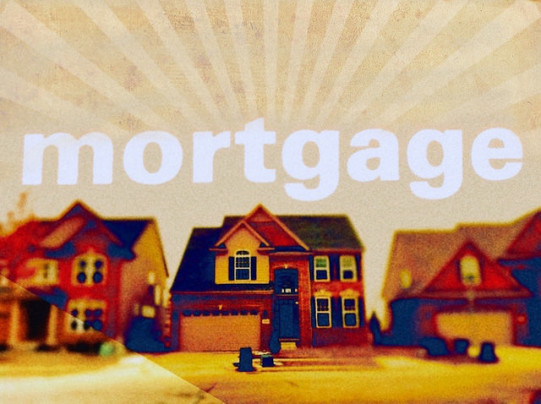The luxury home market didn’t suffer the effects of the housing crash as severely as the rest of the market. It also rebounded faster. But, according to new research, there are a growing number of luxury listings and the additional inventory is changing conditions for buyers and sellers. In fact, the number of luxury home listings rose 4 percent in 2017 over the year before. As a result, prices for luxury homes increased 5.1 percent last year, compared to the 6.9 percent increase the overall market experienced. Luxury properties also took longer to sell than they did the year before. Javier Vivas, director of economic research with the National Association of Realtors, says the market is strong but supply is beginning to outpace buyer demand. “Although 2017 was another strong year for the luxury housing market, it was once again outperformed by the US market overall,” Vivas said. “Age of inventory in the top 5 percent of the market slowed significantly over last year – a tell tale sign that the supply in the luxury sector continues to outpace demand.” In other words, home buyers interested in buying a luxury home, as either a primary or secondary residence, may find more choices, opportunities, and balance among the housing market’s most expensive homes. More here.
Archive for January 2018
Americans More Optimistic About This Year’s Market
Americans feel better about the housing market than at the beginning of last year, according to the most recent Housing Purchase Sentiment Index from Fannie Mae. The index measures Americans’ perception of buying and selling a house, mortgage rates, prices, and their own financial stability. The most recent results show an increase in confidence since last year but a slight weakening from the month before. Doug Duncan, Fannie Mae’s chief economist, says affordability is still the main challenge. “Consumers remained cautious in their housing outlook at the end of 2017, as tax reform discussions continued,” Duncan said. “Entering 2018, housing affordability remains a persistent challenge, particularly in rental markets, where consumer expectations for price increases over the next 12 months reached a new survey high.” Still, according to most forecasts, this year’s real-estate market – though not that different from last year’s – should benefit from an increase in new home construction, which may help keep prices from climbing as quickly as they have been. More here.
Analyst Says Don’t Expect Big Changes In 2018
Housing market fundamentals have been relatively steady, for some time now. Mortgage rates have been low by historical standards, prices have been rising, and inventory has been down. All three of these factors, combined with a growing economy and stronger job market, have kept the real-estate market in a kind of limbo. While the economy and favorable mortgage rates have helped drive buyer demand, there have also been fewer homes for sale, which helps push prices upward. In other words, there are a lot of positives but there are also challenges. Freddie Mac economist, Leonard Kiefer, says this year’s market will likely continue along the same path – though he predicts some improvement. “Income growth should remain positive, but not enough to offset the other factors affecting home buyer affordability,” Kiefer wrote in a recent article. “We’re expecting that interest rates will remain low, but gradually move higher. Housing construction should gradually pick up, helping to supply more homes to inventory-starved markets. More housing supply and modestly higher rates will lead to a moderation in house price growth.” More here.
Credit Score Data A Reminder To Keep Good Habits
Keeping good financial habits is important, especially if you’re expecting to buy a house any time soon. That’s because, your credit history and score will be among the tools your lender uses to determine whether or not you’re qualified for a mortgage. In other words, making sure your credit score is as good as it can be should be a top priority for prospective home buyers. But, though that’s true, last year saw a drop in average credit scores among borrowers. In fact, numbers from Ellie Mae show borrowers’ average FICO score dropped from 728 to 722 year-over-year in November. The good news is that that’s a significant improvement over where it was a few years ago. It’s also, however, a reminder to practice good financial habits, pay your bills on time, and check your credit history for any fixable errors. Joe Tyrell, Ellie Mae’s president of corporate strategy, says the news is encouraging, despite the drop. “With the average credit score dipping, lenders are extending credit to borrowers who may have had no previous access to the housing market,” Tyrell said. “While these scores are still significantly above levels seen a few years ago, it is encouraging to see increased accessibility especially as the millennial population continues to pursue home ownership.” More here.
Mortgage Rates Mostly Steady To End The Year
According to the Mortgage Bankers Association’s Weekly Applications Survey, average mortgage rates were fairly steady at the end of 2017. In fact, 30-year fixed-rate loans with conforming balances were unchanged during the last week of the year – while jumbo loans, loans backed by the Federal Housing Administration, and 15-year mortgages all saw minor movement. All told, rates were fairly steady throughout the year, though they ended December at their highest point in months. Joel Kan, an MBA economist, told CNBC some of the bump was due to increased economic optimism. “With the passage of the tax reform bill, there were increased expectations of stronger economic growth, which pushed rates higher,” Kan said. But despite the week-to-week fluctuations, mortgage rates stayed within a narrow range throughout the year, and expectations are that they should stay relatively calm this year as well. The MBA’s weekly survey has been conducted since 1990 and covers 75 percent of all retail residential mortgage applications. More here.
Homeownership Seen As Path To Financial Security
There’s no shortage of opinions, these days. Which means, you’ve probably heard varying viewpoints on whether or not buying a house is really a smart investment. Especially following the housing crash, it became more popular to say that buying a home may not, in fact, be a better financial choice than renting. But despite the debate, recent research shows that the vast majority of Americans still see homeownership as a path to increased financial security. For example, a recent survey from NeighborWorks found 81 percent of all adults and 71 percent of millennials believe owning a home is good for financial stability. Among the reasons this remains true is the fact that, unlike rent, your monthly mortgage payment is actually buying you an increasing percentage of ownership in your home. As you build up a larger share of ownership and your equity increases, so does your net worth – making homeownership an excellent way of investing in something long term while also enjoying the immediate benefits. More here.
The One Thing Home Buyers Won’t Compromise On
Buying a home means making a lot of choices. You’re going to have to make decisions on everything from how far you’re willing to drive to work and how much storage space you’ll need for all your stuff. The best way to handle the long list of choices you’re going to have to sort through is by breaking into things you can live without and things you have to have. Deciding in advance where you will and won’t compromise will make the buying process easier once you’re fully submerged. So what are the things home buyers are least willing to give up on? Well, according to one recent survey, most buyers say they want a house that doesn’t require a lot of renovations or upgrades. In fact, nearly one third of respondents said this was non-negotiable. And that makes sense. After all, who wants to go through the ups-and-downs of the home buying process only to move into a house that requires months worth of work before you can enjoy it? Other things buyers said they wouldn’t compromise on included a bigger home, outdoor space, a great neighborhood, and a shorter commute. More here.







